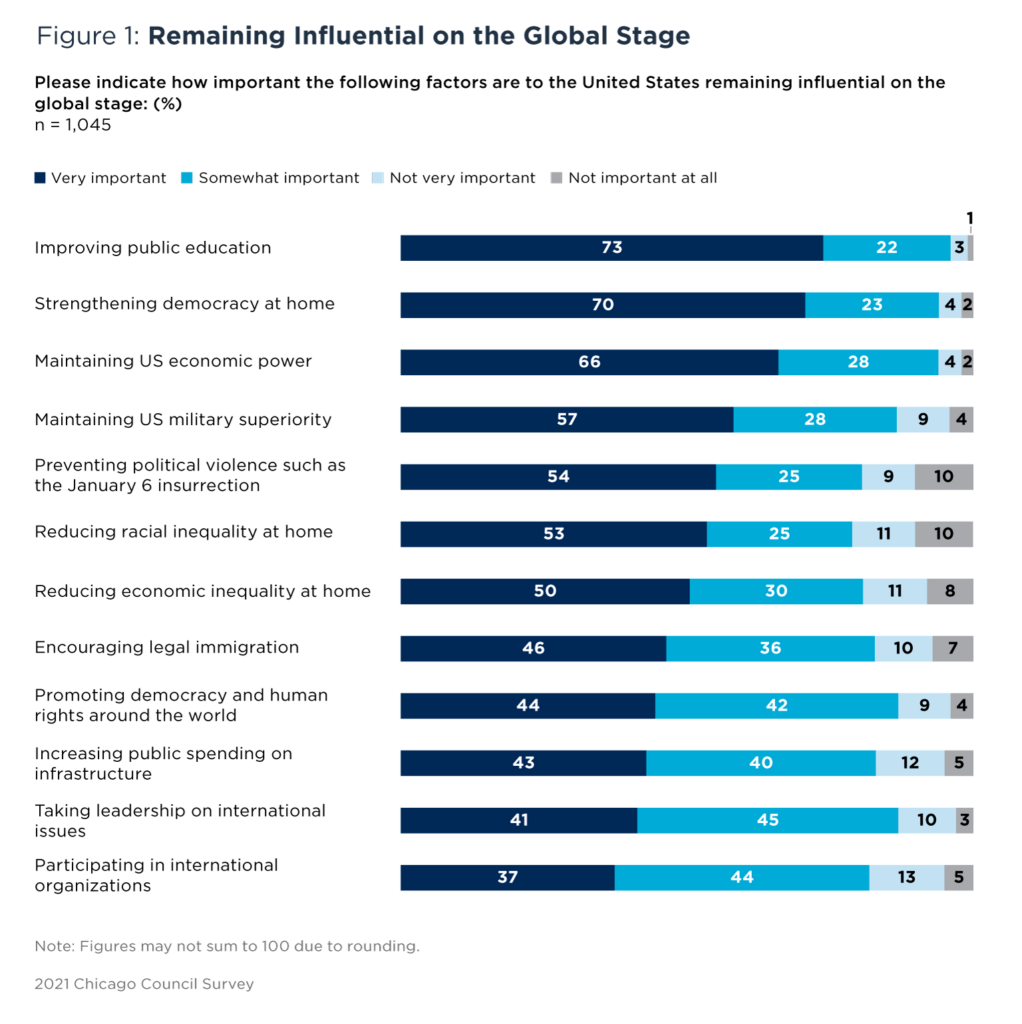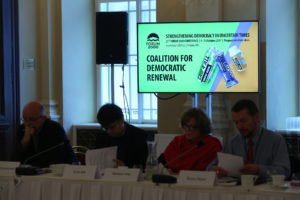
While the Biden administration has endorsed a foreign policy centered on human rights and democracy promotion abroad, the American public does not consider those issues to be top foreign policy priorities, according to a new analysis from the Chicago Council on Global Affairs. While everyday Americans believe that democratic renewal at home is very important for US global influence, they do not feel the same about promoting democracy and human rights overseas, says the 2021 Chicago Council Survey.
Americans think that by making concrete progress at home—by improving education, strengthening democracy, and maintaining US economic power—the United States can enhance its global influence, the survey adds. But they do not think US foreign policy should be laid aside while domestic issues are addressed. On the contrary, Americans expect that domestic improvements will benefit US influence and leadership abroad.
 However, neither human rights nor promoting democracy abroad is a top foreign policy priority for the American public:
However, neither human rights nor promoting democracy abroad is a top foreign policy priority for the American public:
Only four in 10 Americans (41%) see promoting and defending human rights in other countries as a very important goal for US foreign policy. Even fewer (18%) say that helping to bring a democratic form of government to other nations is a very important goal for the United States; in fact, more (27%) say it is not important at all. Furthermore, only a minority of Americans (44%) see promoting democracy and human rights abroad as a very important factor in maintaining US global influence.
An alternative take for democracy advocates is that 86% consider promoting democracy and human rights around the world to be very important or somewhat important.
There is bipartisan skepticism about whether America’s actions in international affairs benefit workers, with fewer than half of Democrats (46 percent), Republicans (45 percent) or independents (38 percent) saying working-class Americans benefit from U.S. foreign policy, the Post adds.

21st Forum 2000 Conference
Seven in 10 (70%) say strengthening US democracy is a very important factor in maintaining US global influence, the report notes. Americans who see their own democracy as being temporarily or permanently weakened are more likely to focus on strengthening democracy at home, and they are less likely to see promoting democracy and human rights abroad as a very important factor in US global influence:
Majorities of Americans consider improving public education (73%), strengthening democracy at home (70%), and reducing both racial (53%) and economic inequality (50%) as very important to maintaining America’s global influence (Figure A). But those are not the only factors important to the public; Americans also see maintaining US economic power (66%) and American military superiority (57%) as key elements to US global influence. It is these latter elements that Americans also see as being directly challenged by a rising China.
Promoting democracy and human rights around the world, taking leadership on international issues, and participating in international organizations are relatively low on the list of priorities for expanding U.S. global influence, the survey suggests. RTWT







